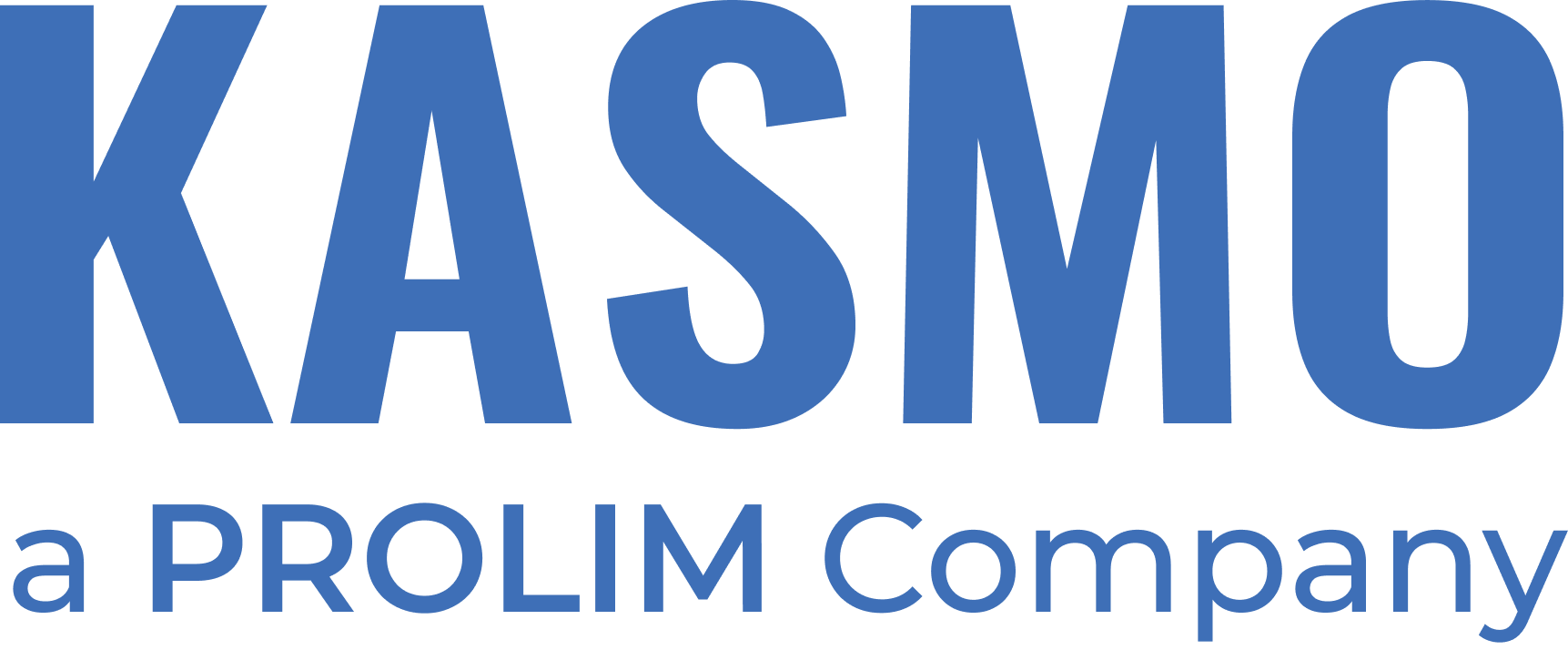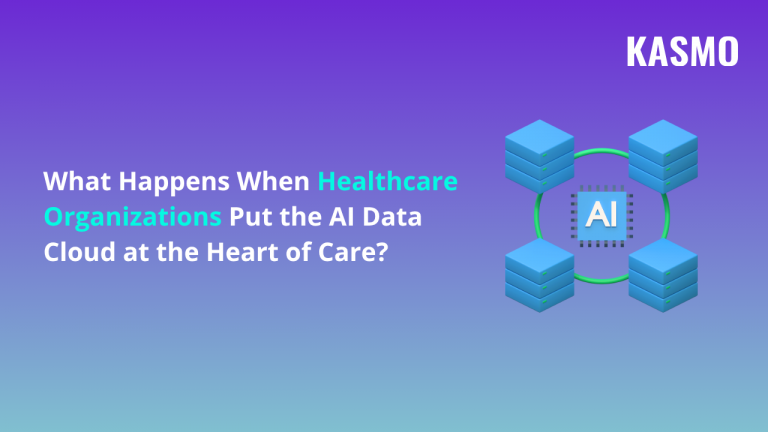The healthcare industry is generating data at an unprecedented pace. According to McKinsey, “Successful AI use requires data, and the industry has ample data for AI tools to dig into—roughly 30 percent of data globally is produced by the healthcare industry. The compound annual growth rate for healthcare’s data is expected to hit 36 percent by 2025.”
This vast amount of information becomes valuable and useful when combined with AI. It helps providers and payers to gain predictive insights, personalized care recommendations, and operational efficiencies. Turning this data into actionable insights requires a secure, scalable, and interoperable platform capable of unifying disparate datasets and providing AI data analytics.
Healthcare organizations can enable these data and AI capabilities efficiently with Snowflake AI Data Cloud. Snowflake helps to integrate clinical, operational, and external datasets into a unified single platform, which empowers the use of AI in healthcare to deliver personalized care. In this blog, we explore key challenges in the healthcare sector and explain in detail how Snowflake AI Data Cloud uses data to create actionable insights for better patient care and business outcomes.
Key Challenges Healthcare Organizations Face
Fragmented Patient Data
Fragmented health care data remains one of the main challenges in developing optimal and personalized care. Patient data often resides in multiple systems, such as electronic health records (EHRs), lab systems, wearables, pharmacy records, and insurance claims. As these data are stored in a different format, it is difficult to create a unified patient view. Incomplete patient histories and a lack of records affect treatment plans, duplicate processing, and increase the chances of medical error.
Fragmented patient data also creates significant financial, operational, and compliance costs for healthcare organizations, as patient services teams often work with conflicting datasets. This results in poor decision-making and lowers collaboration with patients and providers
Cybersecurity Threats
As cyber threats and cyberattacks against healthcare systems continue to increase, patient data security is of the highest priority. Electronic Health Records (EHRs) contain personal, financial, and medical details, making them more valuable to cybercriminals. This makes healthcare a prime target for ransomware and phishing attacks. Many healthcare providers rely on legacy systems that lack strong security protocols. Integrating these systems with new digital health platforms creates vulnerabilities that attackers can exploit.
Lack of Real-time, Actionable Insights
Patients expect fast and personalized care. As most healthcare organizations still rely on retrospective reporting, they process data in batches, which causes delays in identifying risks, monitoring patient conditions, or responding to operational inefficiencies. Without engaging in healthcare analytics, a significant amount of data on individual patients remains untapped, and the possibilities of improving personalized care and health professions could be stalled. With no real-time insight, healthcare providers cannot detect issues, supply chain disruption, or claim discrepancies.
Rising Operational Costs and Inefficiencies
Healthcare costs continue to rise globally, straining budgets for both providers and payers. From managing hospital resources and medical supplies to processing insurance claims, healthcare organizations face escalating costs. Manual processes and administrative burdens have taken a large share of healthcare expenses for patient paperwork, billing, and claims. Staffing shortages worsen the issue as organizations need to manage with available resources. Back-office activities consume a significant amount of the healthcare budget while also producing inefficiencies.
Complex Regulatory and Compliance
Healthcare organizations are challenged with meeting complicated requirements for regulatory compliance. This is due to constant changes in rules, costs associated with implementation, heavy consumption of data security and privacy agenda, and providing patient care with multiple compliance attempts. Balancing security with accessibility is a constant challenge for organizations. A small error can risk patient trust, high penalties, and reputation.
Why Choose Snowflake AI Data Cloud?
Snowflake AI Data Cloud for Healthcare helps providers and payers overcome these challenges by mobilizing data across the entire ecosystem. By unifying clinical, operational, and external datasets in a secure and scalable environment, it enables organizations to provide personalized care and optimize population health management. With patient and member 360 originations, organizations can build a unified view of each patient or member by integrating EHRs, claims, lab results, and wearable devices. This makes it easier for healthcare providers to understand patients’ health conditions, identify high-risk patients, and provide personalized patient care.
AI-powered apps and external datasets present in Snowflake Marketplace help organizations accelerate innovation, generate predictive insights, and make data-driven decisions. All these features help to improve both patient outcomes and operational efficiency.
Snowflake AI Data Cloud Use Cases for Healthcare Organizations

Enables Personalized Patient Care
Snowflake’s AI Data Cloud empowers providers and payers to deliver truly personalized care by leveraging their data in a secure, scalable, and compliant manner. It enables healthcare organizations to share sensitive patient data safely with internal teams, partner hospitals, labs, or research institutions. Built-in security, governance, and compliance protocols ensure that patient privacy is never compromised, even when data is shared beyond organizational boundaries. By analyzing historical health records, treatment outcomes, and patient behavior patterns, healthcare providers can generate personalized health assessments and predictive insights. This personalized care enhances patient satisfaction, drives better clinical results, and operational efficiency for the organization.
Value-Based Care
Value-based care focuses on improving patient health outcomes and patient satisfaction while also considering cost efficiency in healthcare. This requires a holistic view of patient populations, as it needs an understanding of the physical, psychological, and social factors influencing a patient’s well-being to improve outcomes and control costs. Snowflake makes this process easier as it consolidates data from multiple sources—EHRs, claims, lab results, wearable devices, and social determinants of health into a single and secure data platform.
An accurate and unified view of healthcare data helps providers and payers to drive VBC models by measuring outcomes, identifying inefficiencies, and optimizing treatment strategies. Snowflake’s AI Data Cloud also ensures compliance with governance and security standards through data masking, role-based access controls, and other compliance features for sensitive data protection.
Operations and Supply Chain Efficiency
Efficient operations and resilient supply chains are critical in healthcare. Using Snowflake’s AI Data Cloud helps healthcare organizations to modernize operations and gain visibility across the entire supply chain—from administration to clinical practice. Organizations can unify and analyze data across many disparate data sources. This helps to gain detailed operational insights and potentially improve efficiency.
Increased visibility across the healthcare value chain helps to manage supply chain risks with automation that produces rapid insights about supplier events, transportation capacity, and availability of materials. It helps to modernize operations and create efficiencies with Snowflake’s flexible architecture, and allows healthcare payers and providers to adapt to market conditions and cater to patient needs.
Population Health Management
Population Health Management (PHM) is a data-driven approach that helps to improve the health of a defined group of people. It includes identifying health risks, coordinating care, and implementing targeted interventions to provide better care. So, managing population health requires analyzing diverse datasets to identify risks and trends. In the AI Data Cloud for Healthcare & Life Sciences and the Snowflake Marketplace, organizations can identify significant trends with predictive models. With AI and machine learning capabilities, organizations can segment populations based on risk factors, predict disease, and anticipate healthcare needs.
Healthcare providers can also track social determinants of health (SDOH), implement chronic disease management programs, and preventive care campaigns. AI-driven analytics help healthcare leaders identify gaps in care and measure the impact of population health initiatives, enabling data-backed decision-making.
Interoperability and Secure Data Sharing
Healthcare organizations frequently face the challenges of data silos and fragmented systems. Snowflake helps with a secure, interoperable platform that drives collaboration amongst hospitals, labs, and research institutions. The AI Data Cloud has a standard data architecture across end-users to help organizations overcome data silos and share data securely amongst multiple systems and partners.
Snowflake’s AI Data Cloud for Healthcare provides an interoperable ecosystem for organizations to overcome complex architectures, integrate data from disparate sources and systems into a single, scalable platform. It also focuses on increasing operational efficiencies and reducing costs. Built-in security and privacy-preserving collaboration features ensure sensitive patient data is shared safely while maintaining strict compliance with healthcare regulations.
Conclusion
The healthcare sector is evolving fast, and data is a major aspect of this transformation. As healthcare providers and payers aim to enhance patient care while managing costs. Snowflake AI Data Cloud enables organizations to unify health data, gain predictive intelligence, and deliver personalized care. With the advantage of Snowflake’s capabilities, organizations get a comprehensive view of patients’ data, focus on optimizing services, and improving margins while maintaining strict levels of data security, governance, and compliance.




